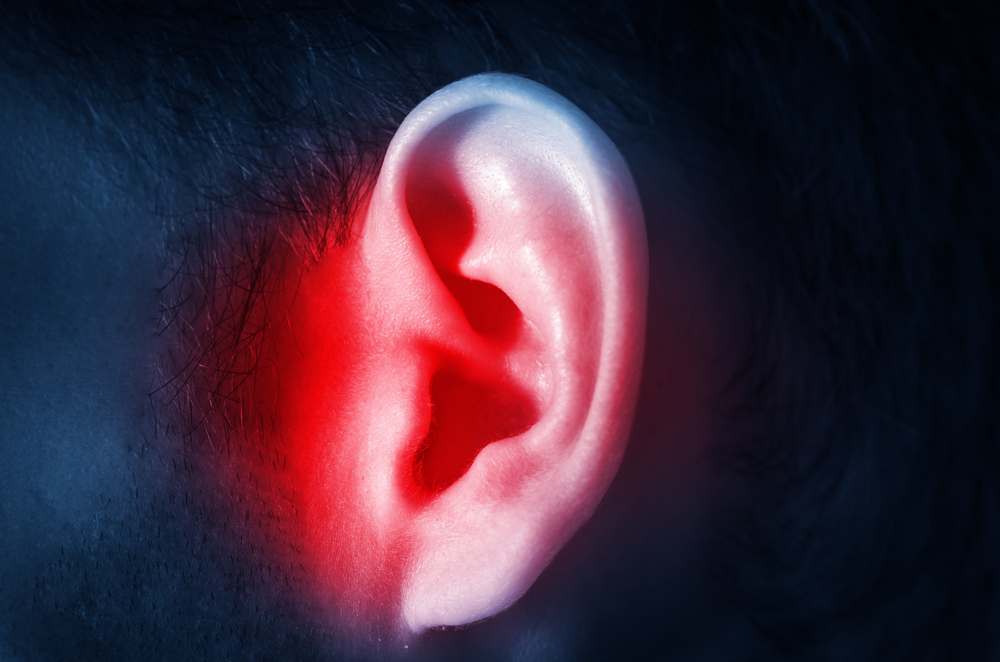
Ear Infections
Ear infections result in inflammation, pain in your ear nose and throat (or straight ear pain) and hearing loss. These can be the result of fluid buildup caused by bacteria and viruses. If you are experiencing what you think is an ear infection it is important to see a doctor or audiologist for medical advice and an accurate diagnosis and treatment.
What are some causes of ear infection?
Ear infections can have a variety of causes and can differ between adults and children.
Ear infections in children
Ear infections can be more common in children and infants than in adults, as a child’s ear anatomy is so small, leading to upper respiratory infections like colds or bacteria in the back of the throat travelling easily to the inner ear, leading to an infection of the middle ear.
The cause of infections in the ears of adults are usually bacterial, but the ear infection that occurs depends on how (and where) you became infected. These causes can include:
Middle ear infection
A middle ear infection is often the result of a respiratory issue like a cold, which can irritate your eustachian tubes and cause them to swell. This causes a buildup of fluid against the eardrum.
Infection in the outer ear
Commonly known as “swimmer’s ear”, an infection in the outer ear can occur if water becomes trapped (sometimes after swimming) or you put fingers or other objects in your ear. Trapped water can harbour bacteria and lead to an ear infection.
Other causes of ear infections can include:
- Smoking or secondhand smoke
- Sinus infections
- Colds
- Excessive mucus
- Swollen adenoids
- Allergies
What are the different types of ear infections?
Your ear can become infected with bacteria, viruses or fungi in either the ear canal or within the tube that connects the throat and ear, the eustachian tube.
Otitis externa
Otitis externa is an ear infection which can cause an inflammation of the ear canal between the outer ear and the eardrum. This can be caused by either trapped water in which bacteria or fungus breeds, or can be caused by external damage from things like incorrect cleaning of the ear. This can be treated with ear drops or antibiotics.
Otitis media
An infection of the middle ear, otitis media is caused by fluid trapped behind the eardrum. An Otitis media ear infection causes the eardrum to bulge. Middle ear infections like this will result in an earache, trouble hearing as well as a sense of fullness in your ear. Acute otitis media can be accompanied by a high temperature. Otitis media with effusion (OME) occurs when there is a buildup of fluid that isn’t infected, in the middle ear.


Mastoiditis
Mastoiditis is an infection of the air cells surrounding the inner and middle ear, the mastoid cells. Usually caused by a middle ear infection, Mastoiditis can result in damage to the mastoid bone and cause cysts filled with pus. Symptoms of Mastoiditis include swelling, redness and tenderness in the ear. Mastoiditis can also cause ear pain and discharge from the ear.
Labyrinthitis
Part of the inner ear is known as the labyrinth, when this becomes inflamed it results in Labyrinthitis; the vestibulocochlear nerve can also become inflamed in instances of Labyrinthitis. The inflammation inside the ear can mean you experience issues with balance and feelings of spinning, as well as hearing loss. In most cases, symptoms of Labyrinthitis go away on their own, slowly over time.
What are the signs and symptoms of ear infections?
Common signs and symptoms of infections in the ear include:
- Ear pain
- A feeling of pressure in the ear canal
- Ear infections often result in dizziness or feeling off balance
- Discomfort when the air pressure changes
- Trouble hearing
- Ringing in your ears
- Fever or high temperature
- Young children who get ear infections may experience symptoms such as trouble sleeping, fussiness and tugging at their ears
How to treat ear infections
Ear infections have a variety of treatments depending on the cause, symptoms and location of the infection. Common treatments for ear infections include:
- Prescription eardrops
- Decongestants
- A warm cloth applied to the area
Ear infections are also likely to get better with antibiotics, antivirals or antifungal treatments if they are caused by a bacterial infection, viral infection or a fungal infection. It is important to be medically diagnosed with an ear infection in order to be prescribed the right eardrops or antibiotics. You can reduce your risk of ear infections if you ensure you have a healthy immune system by limiting alcohol, eating a balanced diet and exercising regularly.
Are you having concerns about your hearing?
Talk to a Bay Audio clinician today.
